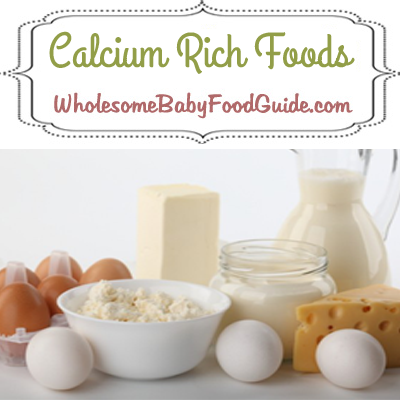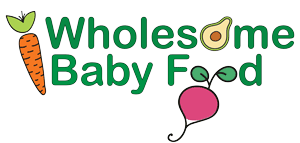
Calcium is a Key Nutrient, a Mineral, That Babies Need
We all know how important calcium is to the good health of our bones and teeth but did you know that of all the minerals we have, calcium is the one found at a higher level than any other our bodies? Calcium is stored in our bones, teeth, and even in muscle and other tissue. It is very important to the growth of healthy bones and those teeth that start coming out around the age of 6 months.
Calcium also helps to build permanent teeth. Your baby will get enough calcium from formula and/or breast milk, and it is only when he starts to wean from these liquids that you need to pay closer attention to calcium needs. Throughout infancy, breast milk will always contain the right amounts of calcium that your growing baby needs and while breast milk contains less calcium than formula, it is better absorbed (as with iron) so that baby does not need as much.
Calcium is found in so many foods that if a baby does not drink milk after the age of 12 months it’s not necessarily a bad thing. Just check out the labels of any foods you buy and you will be surprised to see all the places that calcium lurks: yogurt, cottage cheese, plain cheeses, and even cream cheese are wonderful sources of calcium and Vitamin D and are very nutritious for your little one.
The calcium needs of babies and children are as follows:
Babies 0-11 months of age:
- Babies younger than 6 months old need 200 mg of calcium a day.
- Babies 6 to 11 months old need 260 mg of calcium a day.
The only types of milk babies should have are breast milk or formula. Don’t give cow’s milk or any other kind of milk to babies younger than 1 year old.
Kids and Teens
Kids need more calcium as they get older to support their growing bones:
- Kids 1 to 3 years old need 700 mg of calcium a day (2–3 servings).
- Kids 4 to 8 years old need 1,000 mg of calcium a day (2–3 servings).
- Kids and teens 9 to 18 years old need 1,300 mg of calcium a day (4 servings).
? Babies can eat yogurt and cheese prior to the age of 1 year. Milk should not be offered as a drink because it does not contain enough nutrients for babies to grow and develop properly. Drinking too much milk can also hinder iron absorption and iron is a crucial element in baby’s growth!
* Calcium requirements via Kid’s Health
Check out some other foods that baby might like that that contain calcium:
tofu
broccoli
certain types of legumes such as kidney beans
sweet potatoes
whole wheat bread
fortified orange juice
canned salmon
